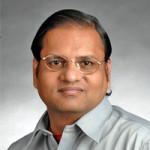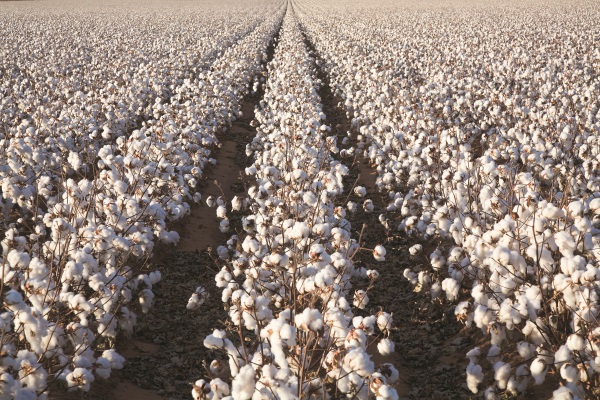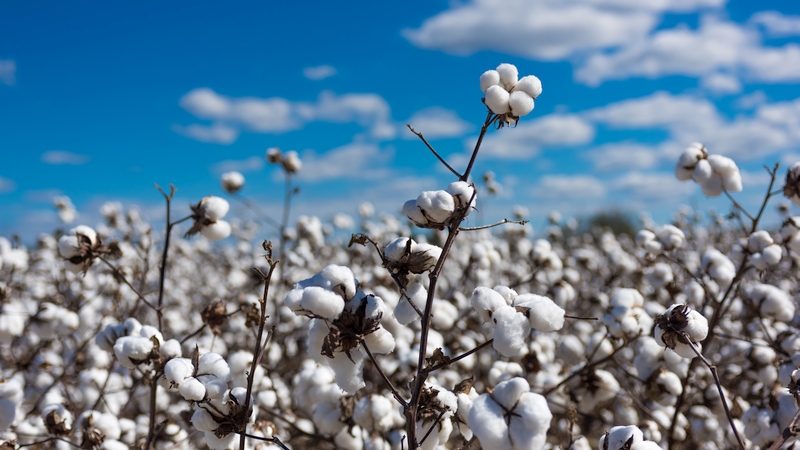Grad Students Explore Cotton as a COVID-19 Countermeasure
Face masks are front and center in this year’s U.S. Presidential election – even becoming part of gift baskets this holiday season.
With wintry weather on the horizon, COVID-19 cases are expected to rise, as is evident in the recent surge in Europe and United States. Given these circumstances, sharing knowledge on biomedical and nonmedical countermeasures are the need of the hour.
I have been handling graduate level courses in the Spring and current Fall semester to discuss state-of-the-art in personal protection against infectious diseases and toxic chemicals. A highlight of the current class is the engaged discussions on the usefulness of PPEs – and particularly cotton as a countermeasure material.
James Ayodeji, a Ph.D. student from Nigeria, presented results from a recent work that appeared in Virology Journal. The work focused on the effect of temperature on the stability of SARS-CoV-2 on common materials. Results from this study and a few others showed that the virus persists for shorter time on cotton than other materials. Interestingly, at a higher temperature of 40OC, no virus was recoverable from cotton within 24 hours. Even at a lower temperature of 20 OC, the amount of virus isolated from contaminated cotton cloth was far less than from other materials investigated.
Face masks work as a barrier medium and the class recognized this aspect based on the data available. Face masks have played a major role in curtailing the spread of the virus according to Tian Shuangmei, a graduate student from China. Using reports from Chinese outlets, Shuangmei made a presentation on how the virus impacted Wuhan and other places in China. “China, being densely populated, means strictly enforcing social distancing may be difficult. Strict rules regarding masks has helped the country to get control on the virus,” stated Shuangmei.
Jonayo Farquharson from the British Virgin Islands handled information on how China successfully kept the situation under control. An important take away has been that managing strict countermeasures in China has been less challenging when compared to western countries due to the centralized epidemic response system, again emphasizing the need for PPEs.
Tracy Musgrove, a former science teacher for 23 years and a graduate student who has lost close relatives to COVID-19, emphasized the importance of masks in controlling the spread.
Over the course of this semester, students engaged actively in discussions on the COVID-19 situation by looking at the cases, deaths and recovery – all the way focusing on countermeasures. Haripriya Ramesh, originally from India, presented information on the structure and shape of face masks, which impact utility and filtration.
Jeremiah Leach, a graduate student and U.S. veteran who has served in South Korea, Iraq and Afghanistan, stated while nonmedical countermeasures like masks and social distancing may not alone be able to end the pandemic, they are necessary to slow down the progression.
“Since being a part of the PPE and Infectious Diseases like COVID-19 seminar, I have gained a plethora of new knowledge about the virus and its countermeasures such as masks. But ultimately, masks should possess proper fit, formability and filtration,” stated Terrell Hilliard.
In my 22 years of teaching at Texas Tech University, while it is clear that I have not witnessed a situation like the current one, a great lesson learned has been that courses should focus on the needs of society and should be flexible to tackle sudden challenges. It is rewarding to observe how the students participated in discussions about a stressful situation – a way of knowledge sharing and developing innovative ideas.
Results from some recent studies are shining a due spotlight on the advantages of cotton as a viral barrier material, but further studies are needed to understand the reasons behind those outcomes.
The course has created moments and, more importantly, has developed students to be citizen scholars who look forward to serving our society.










